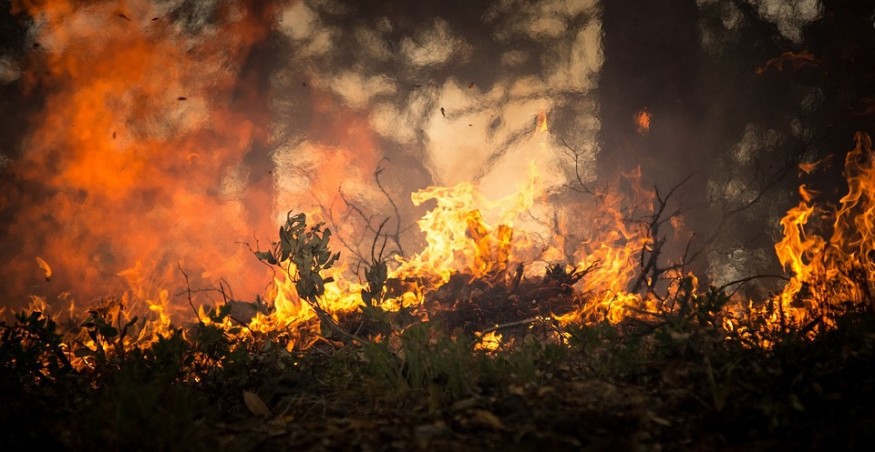
Several of United Kingdom's largest fast-food chains have been selling meat from animals benefited from soya beans connected to Brazil's forest fires, campaigners discovered.
Some £240 million of its soya were shipped to the United Kingdom in 2018, EU trade figures show.
Greenpeace urged the companies to discontinue using soya from Brazil in their supply chains until the environment is protected.
Brazil's environment minister told the BBC's Victoria Derbyshire program that any boycott could worsen the situation. Some 2.5 million tons of soya are brought into the UK every year, with a large portion used to sustain livestock.
In 2018, about 33% of these—761,739 tons—originated from Brazil, BBC News investigation of the EU figures appeared. Furthermore, only 14% of total soya imports are guaranteed "deforestation-free," as per the Sustainable Trade Initiative—probably the most reduced rate in the EU.
Richard George, Greenpeace head of woods, said most fast food organizations don't know where soya originated. He added soya is one of the leading causes of deforestations worldwide.
Environmental activists said growing fires in both the Amazon and Cerrado in Brazil are intentionally lit to clear land for raising animals and grow crops.
There were 144,000 forest fires reported in 2019—a 50% increase on the same period in 2018. But it was far fewer compared in 2010.
Greenpeace in and other environmental groups negotiated landmark restrictions on new soya cultivation in the Amazon in 2006. Large agricultural traders agreed not to buy from farms linked to recent forest fires.
However, campaigners noted it has driven much of a challenge for Ceraddo—a vast tropical savanna where the natural habitat is less well protected.
Brazil's National Institute for Space Research recorded 19,925 fires there in September, which is significantly higher than the number in the Amazon.
McDonald's, Tesco, Marks & Spencer, and other 23 brands signed the Cerrado Manifesto in 2017. The declaration recognized the need to prevent further deforestation.
Pledge
Environmental groups have been attempting to press western fast food retailers on protecting the Brazilian forests.
Tesco, Sainsbury, and M&S, who signed the manifesto, have pledged to accomplish zero deforestation in their inventory chains by 2020.
Along with chains such as McDonald's, Nando's, Pret a Manger, and Five Guys told BBC News they were selling British meat and reared on soya shipped from the regions.
McDonald's said it is working to know the level of deforestation risk in Cerrado and evaluating whether forests are being exclusively lit.
Waitrose, Nando's, and other fast-food outlets said they purchase financial credits intended to compensate for the deforestation crisis.
Temporary Ban
Meanwhile, agricultural trader Cargill, who serves as a middleman between farmers and food corporations, has yet to sign up.
According to Trase.Earth, a community of non-governmental organizations, Cargill is the largest importer to the United Kingdom←shipping 78 percent of the soya. Cargill, however, clarified to BBC News that the data were "inaccurate" and "inflated."
Cargill, in July, told the Brazillian suppliers it wouldn't support the temporary ban on soya coming from Cerrado's newly deforested lands—which angered the environmental groups.
The latest satellite information by the Rapid Response project, seen by BBC News, likewise discovered that Cargill has been purchasing soya directly from ranches from Cerrado liable for woodland fires.
Cargill admitted that they buy soya from the ranch that the organization referred to. However, they clarified the farm met all required criteria needed and was not on the Brazilian government's ban list.
Criticisms
The Brazilian government was confronted by severe criticisms for the policies that environmental activists believe that support more forest fires.
Environment Minister Ricardo Salles, however, told BBC's Victoria Derbyshire program that the strain to avoid Brazilian soya would be counterproductive.
"We need sustainable economic development - and boycotts or behaviors like this will only make things even worse," he said.
© 2025 NatureWorldNews.com All rights reserved. Do not reproduce without permission.





